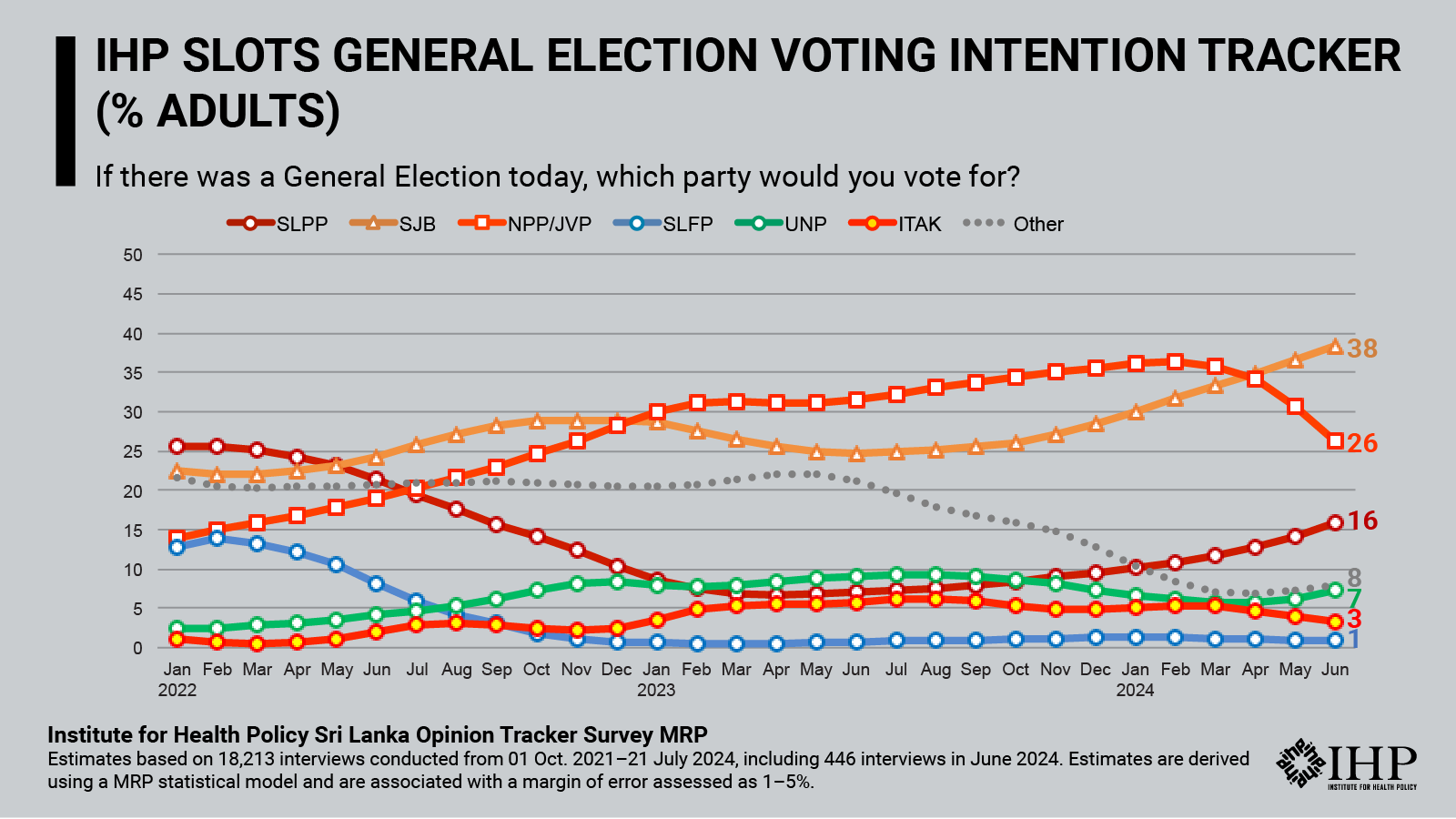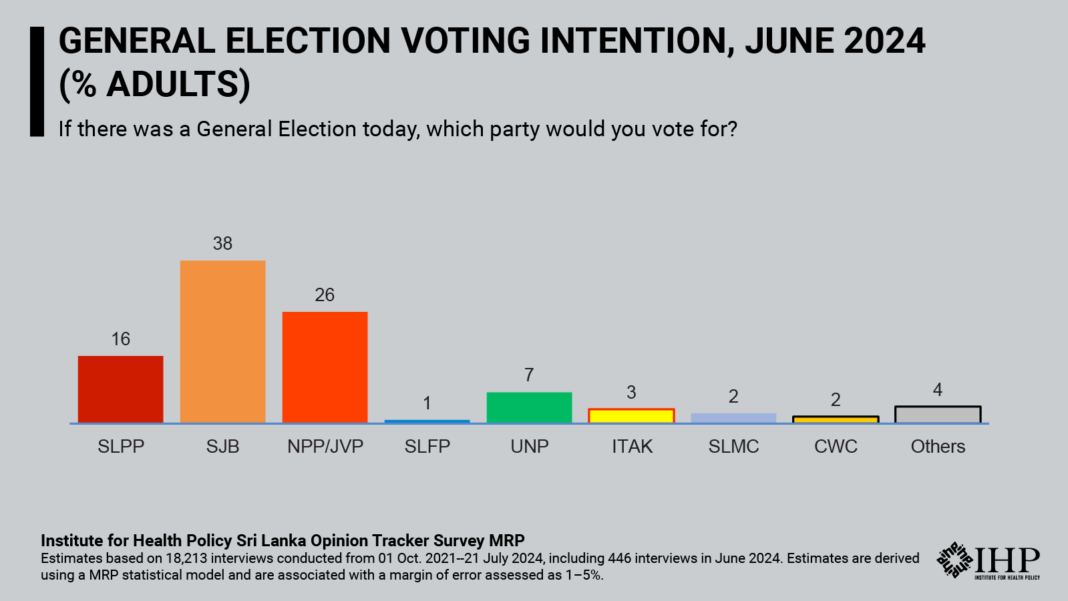The latest estimates from IHP’s SLOTS MRP model (revised 01/2024) show a decline in all adult voters’ support for NPP/JVP to 26% (-5 compared to the previous month) pushing SJB ahead in June 2024. SJB leads with 38% (+1) support followed by NPP/JVP with SLPP at 16% (+2), UNP at 7% (+1), and ITAK at 3% (-1). The June estimates are provisional and are associated with a margin of error of 4–5% for the two leading parties.

Compared to IHP’s June release, estimates of NPP/JVP and SJB support in May 2024 were revised -3 and +3 points respectively. However, the margin of error increased substantially in the June estimates, so IHP advises caution in interpreting recent trends. IHP will expand interview numbers in the coming weeks to resolve any uncertainties.
These estimates are for all adults and not for likely voters. They are based on the January 2024 revision of the IHP SLOTS Multilevel Regression and Poststratification (MRP) model. IHP is working on improving its likely voter model and will resume the release of voting intent in likely voters in a future update. It should be noted that differences in voting intent shares between all adults and likely voters have typically been 1–2% for most estimates in the past two years.
This June 2024 update is based on 18,213 interviews conducted with adults across Sri Lanka since Oct. 2021, including 446 interviews carried out in June 2024. IHP’s SLOTS MRP methodology first estimates the relationship between a wide variety of characteristics about respondents and their opinions – in this case, ‘If there was a General Election today, which party would you vote for?’– in a multilevel statistical model. It then uses a large data file that is calibrated to the national population to predict voting intent in each month since Oct. 2021, according to what the multilevel model says about their probability of voting for various parties (‘post-stratification’) at each point in time. The multilevel model was estimated 100 times to reflect underlying uncertainties in the model and to obtain margins of error. The voting intent results for previous months have changed in this update as more data were collected after the last release, and these changes are within the margin of error.
About IHP
IHP is an independent, non-partisan research centre based in Colombo, Sri Lanka. The SLOTS lead investigator is Dr Ravi Rannan-Eliya of IHP, who has trained in public opinion polling at Harvard University and has conducted numerous surveys over three decades.
Methodology details
SLOTS combines interviews from a national sample of adults (ages 18 and over) reached by random digit dialling of mobile numbers, and others coming from a national panel of respondents who were previously recruited through random selection and face-to-face interviews. IHP estimates voting intent using an adaptation of Multilevel Regression and Post-Stratification (MRP), with multiple imputations to account for uncertainties in its modelling, exploiting data from all SLOTS interviews to estimate voting in a particular month.
The June 2024 MRP estimates are based on 18,213 interviews conducted from 1 October 2021–21 July 2024, including 446 interviews conducted in June 2024. The margin of error is assessed as 0.7–2.7% for the UNP, SLPP, SLFP, SLMC, CWC, ITAK and the “other” parties, and 4.3–5.0% for NPP/JVP and SJB. A total of 100 bootstraps were used to estimate margins of error.
MRP is a method that is increasingly used by polling firms in other countries to leverage small samples, most notably by YouGov which used it to forecast results of the UK Brexit Referendum and recent UK general elections. All estimates are adjusted to ensure the sample matches the national population with respect to age, sex, ethnicity, socioeconomic status, education, geographical location, and voting in the 2019 Presidential and 2020 General Elections.
